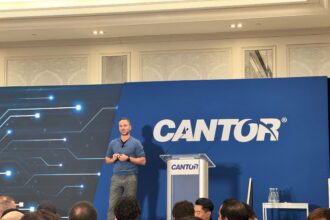Robinhood (HOOD) stock experienced a significant rally, nearing its all-time high, driven by investor enthusiasm for its strategic integration of blockchain technology and tokenization initiatives.
The company’s shares surged by more than 27% over the preceding month, reaching an intraday high of $94.65 during Wednesday’s New York trading session, close to the July 2 all-time closing peak.
This momentum has lifted the market capitalization past the $82 billion mark, representing a 137% increase year-to-date. Contributing factors to Robinhood’s recent performance include a record-breaking first-quarter revenue of $927 million, a 50% year-over-year increase.
This growth acceleration towards the month’s end followed the public unveiling of a new, tokenization-focused Layer-2 blockchain infrastructure built upon the Arbitrum platform. This system aims to facilitate Robinhood’s offerings of tokenized US stocks and ETFs to European investors.
Furthermore, Robinhood has proposed establishing the Real World Asset Exchange (RWAx), designed for on-chain settlement of real-world assets within the United States.
Despite the stock rally, Robinhood’s tokenization strategy faces regulatory hurdles.
Its tokenized equity products, including representations tied to major entities like OpenAI and SpaceX, have prompted concerns from European authorities, particularly Lithuania, which requested additional information.
Responding to these queries, CEO Vlad Tenev asserted that these specific products do not qualify as traditional equity securities. However, data provider Galaxy Research suggests these private equity tokens operate functionally akin to derivatives providing indirect exposure to non-public firms.
Tenev, speaking during a Tuesday interview with Bloomberg, noted the significant interest drawn from numerous private companies seeking similar tokenization opportunities for equity access.












